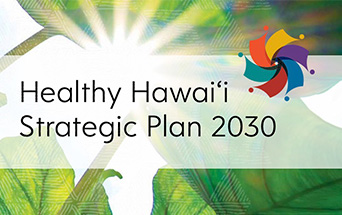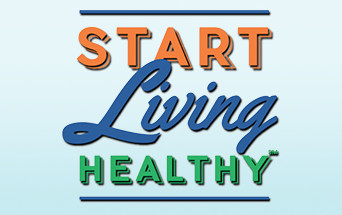What You Can Do
 By promoting a lifestyle that includes physical activity, healthy eating, being tobacco-free, and in control of blood pressure and blood cholesterol, The Hawaii State Heart Disease and Stroke Prevention Program and partners are working hard to improve heart health and prevent and reduce the incidence of cardiovascular disease (CVD) in Hawai`i. Want to make a difference in your own life, your family or your community? Below are some suggestions on what you can do to help:
By promoting a lifestyle that includes physical activity, healthy eating, being tobacco-free, and in control of blood pressure and blood cholesterol, The Hawaii State Heart Disease and Stroke Prevention Program and partners are working hard to improve heart health and prevent and reduce the incidence of cardiovascular disease (CVD) in Hawai`i. Want to make a difference in your own life, your family or your community? Below are some suggestions on what you can do to help:
What You Can Do – At Home
- Be a role model. Teach your children that healthy foods such as fruits, vegetables, and whole grains are yummy and good for our bodies.
- Talk to your children about limiting unhealthy foods such as fast food and junk food. Put the focus on health, not on appearance, to avoid extreme dieting and an obsession with body weight.
- Always check food labels for fat, calorie, and sodium content. Avoid buying sugary cereals. A diet with 30% or fewer total calories from fat and low in saturated fat along with regular exercise may lower your cholesterol level. To learn how to read nutrition labels go to the American Heart Association website.

- Limit soda and sugared fruit drinks (i.e., fruit punch, lemonade).
- Plan family activities such as walking, hiking, or biking.
- Limit the amount of time children spend watching TV and on the computer to fewer than two hours per day.
- If you smoke, there are ways to help you stop. To learn more about cessation services provided in the state of Hawaii go to: https://health.hawaii.gov/tobacco/tobacco-prevention-and-control-section/quitting-tobacco/
- Keep your children safe from secondhand smoke by not smoking in the house or in the car. Teach children from an early age the dangers of tobacco use and how hard it is to quit once you’ve started smoking.
- If you have high blood pressure and are prescribed medication, it is important that you take it as directed.
- If you are placed on a cholesterol-lowering medication, it is important to take it as it is prescribed.
- Know the warning signs for heart attacks and strokes. Don’t be afraid to call 911.
What You Can Do – In Your Community
- Ask that school gyms and pools be available during evening and/or weekend hours for public use.
- Ask town planners to require sidewalks and bike paths in new developments.
- Encourage your town to have tobacco-free playing fields.
- Ask local restaurants to offer low or nonfat milk and salad dressings, as well as healthy entrees.
- Encourage community groups to provide a healthy food option at events they sponsor.
- Work with local community groups and town officials to develop and maintain safe walking and biking trails.
Learn more about safe walking and biking in Hawaii:
https://highways.hidot.hawaii.gov/stories/s/h4ss-c6xy
What You Can Do – With Your Health Care Provider
- Have your blood pressure checked at every visit to your provider or at least every two years. Ask your provider what your blood pressure is and what the numbers mean.
- Ask to have your cholesterol checked at least every five years. Ask your provider what the numbers mean.
- Always inform your provider of any family history of high blood cholesterol, heart disease, or stroke.
- If you have a family history of diabetes, request to have a blood test done to check for it.
- Ask your provider for information on how you can decrease your risk of having heart disease and/or stroke.
- If you smoke, talk to your provider about ways to stop smoking.
What You Can Do – In Schools
- Ask that healthy food options like low-fat milk, vegetables, and fruits always be available.
- Urge implementation of a policy banning tobacco use on school grounds and at all school functions.
- Work with school and town officials to develop and maintain safe walking and biking routes to school.
- See that healthy options are offered at sporting and other group events.
What You Can Do – With Your Government
 Your participation in the legislative process is vital to the health of you, your family, and your community. Your legislators can only represent you and your community as well as they understand your interests and the effect their decisions will have on your health. If you think they should be addressing certain issues or voting a certain way on an issue, it is your responsibility to let them know.
Your participation in the legislative process is vital to the health of you, your family, and your community. Your legislators can only represent you and your community as well as they understand your interests and the effect their decisions will have on your health. If you think they should be addressing certain issues or voting a certain way on an issue, it is your responsibility to let them know.
Encourage your State legislators to pass laws that have a positive effect on the heart health of people
living in Hawai`i, including laws that promote and support physical activity, healthy eating, being tobacco-free, controlling high blood pressure and high cholesterol, and appropriate treatment of heart attack and stroke.
- Know your legislators and government officials.https://www.capitol.hawaii.gov/members/legislators.aspx?chamber=all
- Find information on current bills, laws, and regulations.https://www.capitol.hawaii.gov/.



